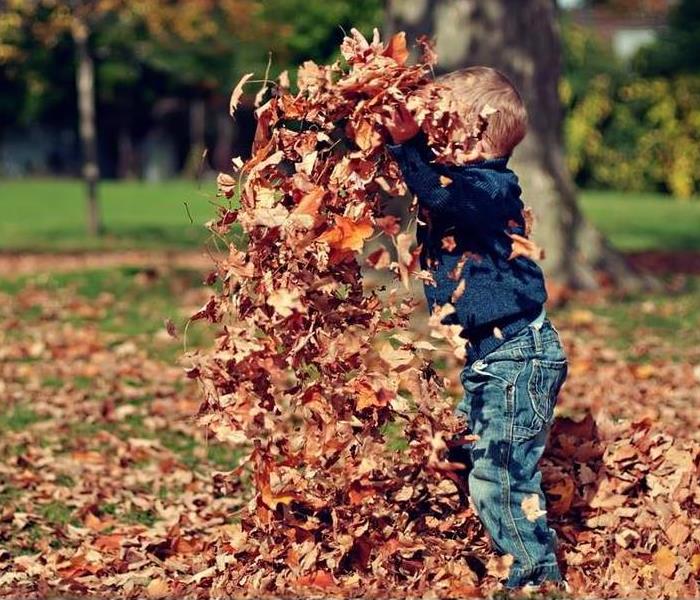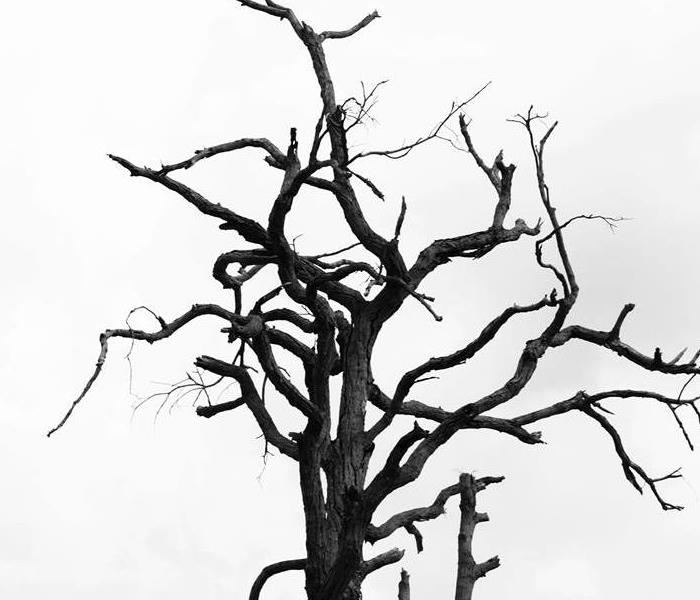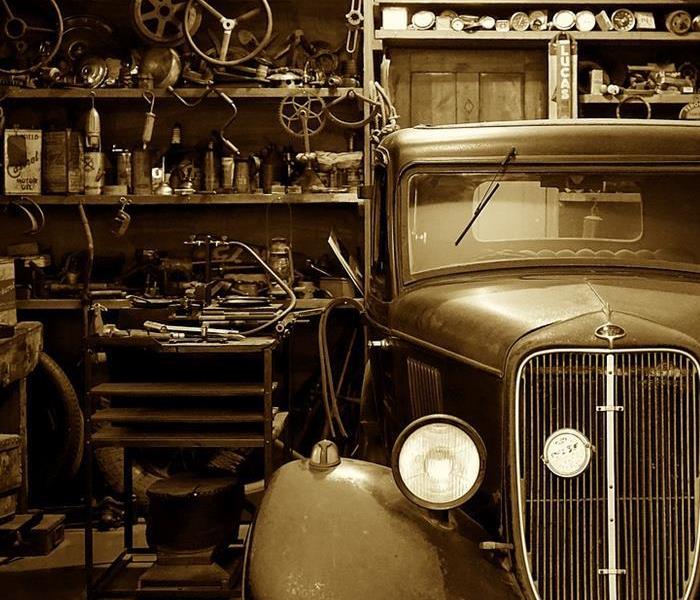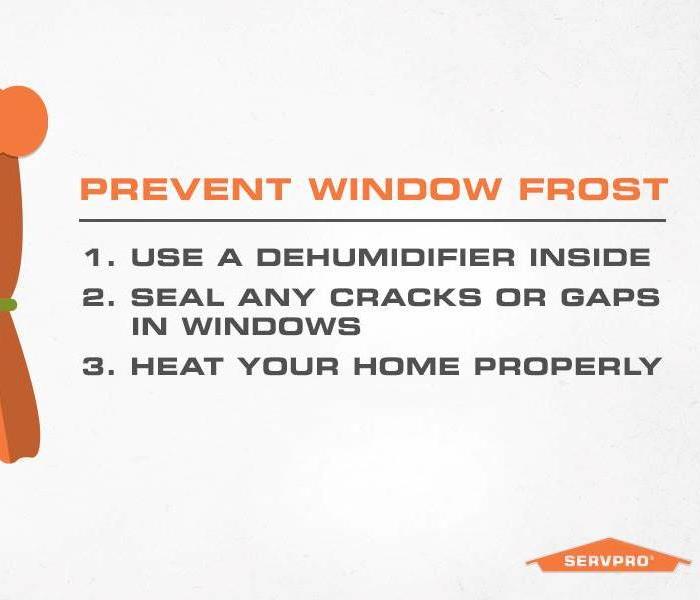Archived General Blog Posts
September is National Preparedness Month
9/4/2018 (Permalink)
September is Emergency Preparedness Month (EPM), an annual event sponsored by the Federal Emergency Management Agency (FEMA) to raise awareness about the importance of advance preparation for the unexpected.
Using the theme, “Disasters Happen. Prepare Now. Learn How,” they encourage individuals, families, businesses, and communities to train on how to respond when disaster strikes and what to do during an emergency, whether at home, at work, in school, or in a place of worship. This preparedness will also help first responders to do their jobs.
FEMA's National Preparedness Month Social Media Toolkit gives you key preparedness and marketing messaging and links to graphics that you can print in your newsletter or share on your social media channels by copying the messages directly or customizing them to reach your particular audience.
The Weekly Themes for 2018 are:
Week 1: September 1 through the 8 Make and Practice Your Plan
Week 2: Sept 9 through 15 Learn Life Saving Skills
Week 3: Sept 16 through 22 Check Your Coverage
Week 4: Sept 23 through 29 Save For an Emergency
You can share such important issues as preparing for an emergency, having an evacuation plan, how to sign up for local emergency alerts, skills you need to aid those in need until help can arrive, tips such as flood-proofing important documents by placing them in plastic bags to protect against water damage, and so many more ideas including, importantly, how to beware of scams and frauds when you later seek disaster assistance.
FEMA also has online training to help get everyone prepared, learn the five key actions you can take to save a life, and help to plan a preparedness event for the community.
After the disaster, your locally owned and operated SERVPRO of Brunswick Residential and Commercial Restoration and Cleaning Service will be standing by with their 24-hour emergency highly-trained technicians, equipment, and expertise to help with storm, water, fire, mold, or any other damage and cleaning needs. They are one of more than 1,700 expert franchises in the United States and Canada.
SERVPRO of Brunswick also realizes that lost productivity and revenue can be devastating to your business and prides itself on being able to get your commercial property up and running again quickly.
They are an active member of the Brunswick, Georgia, community and are ready to do their part to make the community the best it can be, whether in normal times or in the event of a disaster.
Safety Tips for Seasonal Yard Work
11/15/2017 (Permalink)
 Those leaves aren't going to rake themselves, right!
Those leaves aren't going to rake themselves, right!
For many people, seasonal yard work is a relaxing activity, however, thousands of people are injured while they are performing home maintenance tasks. Fortunately, most accidents can be prevented. SERVPRO of Brunswick offers some tips to stay safe during yard work.
Read Instruction Manuals
Read the instruction manual before operating new yard equipment. The owner's manual has important safety information. Check the manufacturer's website to learn about model recalls.
Practice Ladder Safety
A ladder should be placed on a level surface; never set ladders on crates or boxes. Always store ladders in a secure storage area.
Keep Children Away from Yard Equipment
The yard can be a dangerous place when it is cluttered with lawn equipment. Tools injure thousands of children every year, so keep young children inside while you are mowing the lawn.
Extension Cords and Fire Damage
Faulty electrical cords can cause fire damage. No cord should have any exposed wires. If the cord has minimal damage, seal the crack with electrical tape. Throw the cord in the trash if it has any exposed wires. Never run an extension cord through a puddle of water.
Wear Protective Gear
Lawnmowers can hit sticks and rocks. For your own safety, always wear long pants. To protect your eyes and ears, wear sunglasses and headphones. Wear sunscreen if you are going to be outdoors for several hours, even in the fall and winter months.
Store Chemicals in an Enclosed Area
Lawn chemicals will destroy weeds, but the products can also harm humans. Never leave an open bag of lawn fertilizer in the backyard; seal bags and keep the products away from children and pets.
Do Not Dig Without Approval
Contact your local utility company before digging a trench. If you do not contact the utility company, you might hit a sewer line and the repair bill can be very costly.
Be Mindful of Electricity
Do not leave electrical machines plugged in overnight. Before starting the equipment, make sure that the machine is in the off position. Always unplug the machine before attempting any repairs.
Be Aware of Toxic Plants
Research the toxic plants in your yard, as your backyard might have poison oak, ivy, and sumac.
And of course, never operate machinery while you are intoxicated, and do not overexert yourself.
How Do You Know If Your Tree Is Dying?
10/27/2017 (Permalink)
 These are the signs to look for if you think your tree is dying.
These are the signs to look for if you think your tree is dying.
How to Spot a Dying Tree on Your Property
Trees are one of nature's most beautiful gifts. But when your regular home maintenance schedule doesn't include tree inspection, trees can become a danger to your Brunswick property. Knowing signs of a dying tree are critical – before it's too late. Here are five ways to evaluate your trees.
- Have you seen chipping bark? No need to panic – yet. Trees commonly lose some outer shell here and there. A healthy tree will regenerate lost bark. However, if you're noticing that the trunk is not recovering or are seeing bare patches, it's a sign of a sick tree.
- Think back to the last wind or rain storm. Were there branches down afterward? If it was more than a handful, you may have a problem. Here's a good test: try to snap one of the fallen branches. Does it snap easily? That's a sign of a dead branch. A tougher snap indicates green wood and a healthy branch.
- How are the leaves? If there are bare branches in the height of summer, it's likely your tree is sick. Yellowing leaves before autumn hits? Dropping leaves early in the season? These are both indicators of disease. Take a look at your trees in the winter. Are there brown, brittle leaves still attached to branches? That's a telltale sign of a dead branch. What about evergreen trees? Red or yellow needles on the top half to top third of the tree can indicate a dying tree.
- Take a look at the base of the trunk – do you notice mushroom-like fungus? This type of fungus thrives on rotting wood. And unfortunately, once you're seeing visible decay on the outside of the tree, it's too late. Decay begins on the inside and works to the outside. If they haven't already, wood boring insects will quickly feast on the decay, weakening the tree further.
- Have there been any environmental changes or stressors to your trees? Construction can inadvertently damage a root system or newly expose a tree to the elements if surrounding trees were cut down – and both scenarios will weaken a tree.
It's important to identify and correct dying trees on your property and in the community before the disease can spread. There's nothing more dangerous to people or to property than falling trees and branches. If the worst happens and your property is damaged, SERVPRO of Brunswick is here to help.
4 Tips to Keep Your Garage Clean and Safe
10/17/2017 (Permalink)
 Organizing your garage makes the space safe and manageable!
Organizing your garage makes the space safe and manageable!
Garages are essential places where people store vehicles, bicycles, motorbikes, and other things. We keep lots of valuable things in our garages, so let's make sure it's a safe and organized area! How do you use your garage? Some store children’s equipment, boxes, and other miscellaneous items. Regardless of what is there, a garage should be neat and tidy.
To create more space in your garage, you have to keep it organized. Move everything you feel is out of place to create more space for your vehicles and important items. We advise our customers to observe the following tips to keep garages clean, safe, and organized throughout the year.
Get Rid of Unnecessary Things
Before cleaning your garage, you should cut unnecessary things and keep them in the right place. Consider hiring a qualified contractor to build shelves on the walls of the garage. You will store your items safely on the shelves.
Clean the Garage
After getting rid of extraneous items in the garage, the cleaning can begin. Our services at SERVPRO of Brunswick are affordable. We will transform your personal or professional garage into a clean place for your vehicles and other items.
Paint the Garage Floor and Walls
We advise homeowners in Brunswick to paint their garage floors and walls to ease the maintenance process. Additionally, a well-painted garage looks presentable to everyone in your household, including visitors. Only buy high-quality floor paint from reputable dealers. The paint will seal cracks and prevent floor damages from moisture, which will prolong the lifespan of your garage.
Mitigate Fire Hazards
If you have flammable liquids stored in your garages, be careful! Fire can erupt in some situations. You should have effective measures to curb these challenges when they happen. However, the best thing is to prevent the fire from erupting by performing the following activities:
- Avoid overloading circuits
- Clean oil spills immediately
- Keep flammable substances away from electrical appliances
At SERVPRO of Brunswick, we offer both commercial and residential cleaning and restoration services. Our customer care team is available 24/7.
Get Your HVAC Ready for Autumn with These Tips
9/11/2017 (Permalink)
 Autumn is almost here. Make sure your home is ready for the new season.
Autumn is almost here. Make sure your home is ready for the new season.
The cooler breezes of autumn are starting to make their presence known. Now is the time to make sure your HVAC systems are ready to handle these cooler breezes. That way, you, your family and your home will remain comfortable as the weather cools down. Here are some tips to make sure your HVAC systems can handle the change.
- Get a tune-up. Just like a car, your heating and cooling systems need regular maintenance to keep running smoothly and efficiently. The HVAC technician will inspect the system, make adjustments, and ensure the system is ready for autumn. This tune-up will help your system run efficiently, whether you are running the A/C or the heat. It will also help keep your energy bills under control.
- Check and change your filters. Modern heating and cooling systems need a clean, steady flow of air to run efficiently. Filters help clean the air, but they can become clogged over time. You need to check the filters monthly and change them out as needed. This will ensure your system runs efficiently and without strain.
- Check your outside unit. Here in Georgia, a lot of people have heat pumps to handle both heating and cooling. That means somewhere around your home there may be an outside unit. Autumn leaves can clog these outside units. Take time to remove leaves and debris. Then do a quick inspection to make sure there is no damage.
- Get your thermostat programming up to date. Autumn has its ups and downs in temperature. Your thermostat needs to be set properly to keep your home comfortable. Update your programmable thermostat as needed. If you don't have such a thermostat, now is the time to get one installed.
- Clean your ductwork. Summertime brings plenty of dust and pollen into the home, and subsequently into your home's ductwork. If you were to take a look in your ducts, you would likely see a layer of dust along the duct walls. That means every time the system turns on, the dust and pollen get distributed throughout the house. A periodic cleaning can remove that debris and make the entire system work better. On top of that, you get cleaner air throughout the winter.
These tips will help you get ready for the cooler months ahead. If you want to learn more about cleaning the ductwork in your home, give us a call here at SERVPRO of Brunswick.
Prevent Window Frost
1/27/2016 (Permalink)
It's not only important to stay warm, but it's also important to stay warm safely. Be mindful that burning charcoal produces carbon monoxide and shouldn't be done in an enclosed area without a proper venting system.






 24/7 Emergency Service
24/7 Emergency Service




